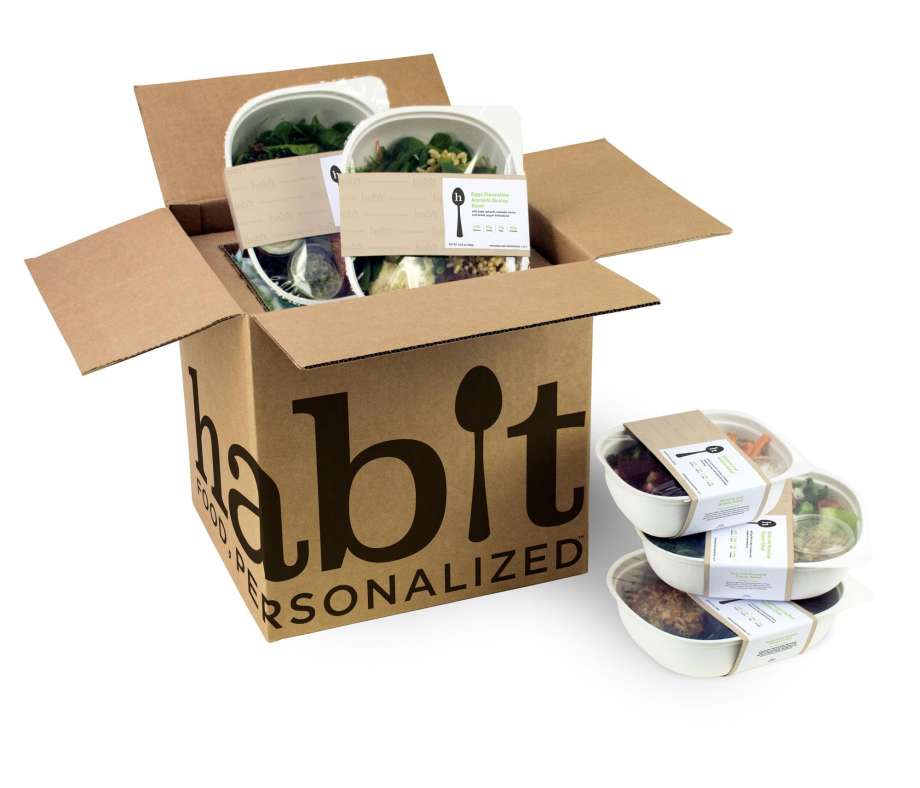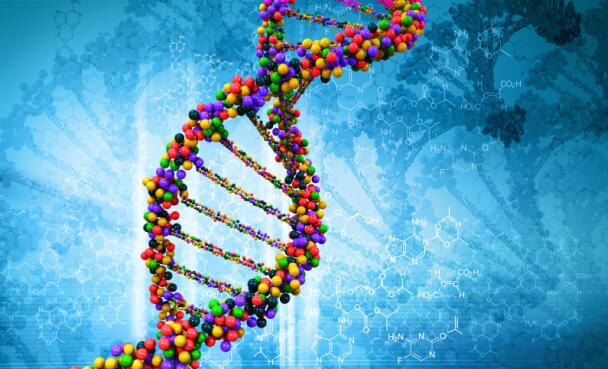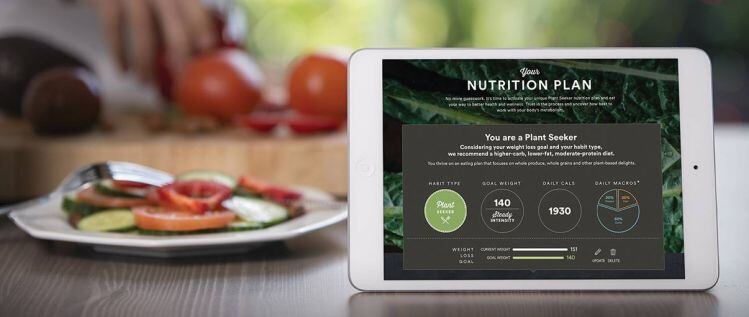He explained: “We started testing the full test to table experience, our [blood and DNA] test kits, our personalized nutrition plans and customized meal delivery in the Bay area in early 2017. But not long after that we were approached by Good Morning America and The Today Show who ran segments on us, and as a result [of all the publicity that generated] we accelerated our plan to go national with the testing and results program in July.
“As we’re a start-up, although it was very successful, we ended up putting the Habit meal delivery program [fulfilled by a commissary kitchen in Oakland and delivered twice weekly in the Bay area] on pause so we could focus on the national roll out of the testing kits.”
We want to have a bigger impact
But will Habit’s meal delivery service resume in future, and is it an essential component of the company's business model?
According to Grimmer: “We see a world of possibilities. When we arrive at the right way to deliver higher food quality combined with a high degree of personalization, that’s when we’ll bring it to market. But right now we’re aggressively focused on getting more of the tools that people need to activate their results into their daily lives, and meal delivery is just one of those tools.
“There are so many other ways we can help people besides just a meal delivery program; we want to have a bigger impact.”
For example, one thing that became clear during the beta test was that while Habit could use each bowl of food it sent out as a learning opportunity (this is what a healthy meal for me looks like in practice) as well as a practical tool to help users achieve their goals (I’ve got dinner covered tonight), it was still only capturing a limited number of eating occasions per week, said Grimmer.
And for a truly personalized, all-embracing offer, Habit wanted to help customers “navigate every choice,” added Grimmer, a co-founder of babyfood brand Plum Organics, who secured $32m in funding from Campbell Soup to support Habit’s growth in the fall of 2016.

“How do I cook, shop, how do I dine? So we moved from thinking about just creating some meals to curating all food; for example, each week we send out nine personalized recipes to customers per week, three for breakfast, six for lunch and dinner.
“As part of the Ally program, we also offer a four week coaching experience [to help translate the test results into actionable, habit-forming, diet and lifestyle changes].”
There’s no silver bullet biomarker that can tell you exactly what you should eat
Unlike some players in the emerging personalized nutrition field that focus on DNA (notably how genetic differences between individuals influence how they respond to dietary components from caffeine to lactose) Habit offers a more holistic approach, providing customized advice built around users’ goals and preferences as well as their biology.
The $299 Core testing kit includes a cheek swab for DNA and a finger-prick blood test to measure an array of things from cholesterol, triglyceride, and blood glucose levels, to how your body responds to the macro-nutrients (carbs, fat, protein) in a metabolic challenge meal replacement shake.
But it also asks for height, weight, and other body measurements, and asks you to outline your personal goals and aspirations (Are you looking to get more energy? Lose weight? Train for a marathon?).
“Often personalized nutrition gets short-handed as ‘DNA diets’ but it’s just one part of what we do,” said Grimmer. “Habit is not only biology-based, it’s behavior-based. There’s no silver bullet biomarker that can tell you exactly what you should eat.”

Select examples of SNPs (single nucleotide polymorphisms) Habit will test for:
● CYP1A2 rs762551 - which relates to caffeine metabolism.
● MCM6_rs182549 and MCM6_rs4988235 - which relates to lactose digestion.
● FTO_rs993609 - which relates to your desire to eat and your predisposition to weight gain.
● TCF7L2_rs7903146 - which relates to your ability to regulate blood sugar.
Does it work?
So does Habit ‘work’ (and how do you define success?) and if so, is that because there are such meaningful differences in the way individuals process macronutrients and respond to certain micronutrients that they need highly customized dietary advice, or is it more about psychology (when advice is personal, people are more likely to heed it)?
It’s both, said Grimmer, who claimed that Habit users drank less alcohol and soda, ate more vegetables and lost weight during an 8-week pilot study with 20 consumers.
“We saw wonderful results. 74% lost weight, although we’re not a ‘diet’ program, and we saw a 56% increase in the consumption of non-starchy vegetables, and a 43% reduction in sugary beverages, a 26% decrease in alcohol consumption and an 83% increase in what we call eating confidence, helping people understand what food choices they are making and why. What does my body need?”
While cynics might argue that you don’t need a degree in systems biology to work out that eating more veggies and cutting down on soda and booze is probably a good plan regardless of your genetic makeup, it’s also undeniable that one-size-fits-all dietary recommendations may not create a path to optimal wellness for every individual, claimed Grimmer.
It’s also undeniable that Americans are not following generic public health advice outlined in the Dietary Guidelines for Americans, he added: “Current approaches are clearly not working.”

Personalized advice has to be actionable
That said, personalized advice has to be actionable, he said. Say for example, your test results suggest that your optimal ratio of protein, carbs, and fat is 20:50:30, what can you do with that information? Do average Americans (as opposed to elite athletes) have the first idea what percentage of their energy intakes are currently derived from carbohydrate, such that they know whether they actually have to eat more, or less, to get to the 50% goal?
“Percent macronutrient ratios in a pie chart are great for some of the more analytic folks but we have multiple ways to articulate ratios," said Grimmer. "So we provide visuals of what your ideal plate would look like, or sets of guiding principles customized to you, or customized ‘hero’ foods you personally should always try to incorporate into your diet.”
One finding for some “high performance individuals” using Habit was that they were deliberately cutting down on carbs because they thought a ‘Paleo’ style diet would help them achieve their goals, when results from Habit’s metabolic challenge revealed that they could actually benefit from more carbs, said Grimmer.
“One individual followed the advice and found that it really improved his workouts and recovery time.”
The systems biology approach to optimizing wellness: We take a holistic view
But just how personal is Habit’s advice, what data is it collecting, and is the science behind personalized nutrition really ready for prime time?
“We do more than 60 tests and we’ll look [via the DNA test] at things like SNPs [single nucleotide polymorphisms or genetic variations between individuals that may explain why they respond differently to certain nutrients, for example], but we’re not basing a whole diet plan around these.”
Moreover, Habit is not trying to calculate your risk of developing certain lifestyle-related diseases based on a handful of SNPs, which is irresponsible at this stage given that we’re still learning about the complex interplay between genes and environmental factors (of which diet is just one), and we don’t really know the extent to which we can modify this risk though specific dietary interventions.
“The DNA tests in combination with the other results help us understand your architecture, but they are not leading indicators," says Grimmer.
"Everything that the lab tests was chosen because it ties to specific nutrition recommendations, not lifestyle-related diseases."
"We are working with leading systems biologists [TNO principal scientist and NuGo founder Dr Ben Van Ommen is a science partner, while LeRoy Hood and Nathan Price from personalized wellness company Arivale are on the advisory board] that understand that you are a complex ecosystem of parts.”

